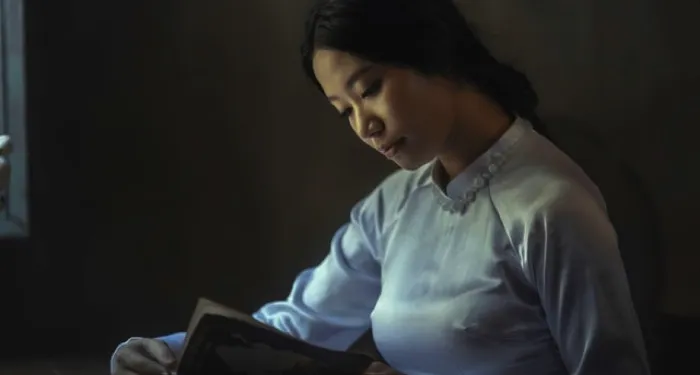
Why I Used to Be Scared of Poetry (But Can’t Get Enough of It Now)
Poetry. When I was really young (I’m talking grammar school age) I loved the stuff. Silly poems about dudes in bathtubs, nursery rhymes, that ridiculous “red is for roses” stuff. It was fun. I mean, who doesn’t love playing with rhymes? Surely I can’t be the only one who cherishes that “Anybody want a peanut?” scene from The Princess Bride.
But then something happened. One day poetry was fun, the next it was…well, not. I can’t remember when it happened, but I know by the time I reached high school poetry was weird. I was kind of afraid of it. All those poems written in flowery language seemed so irrelevant to my existence. And sometimes, when my classmates seemed to understand what they were about, I felt unintelligent. Poetry brought out my fears that I wasn’t as smart as my peers.
My growing dislike of poetry wasn’t helped by the divide I felt for a long time between the kinds of literature I was required to read for school and, you know, real life. (How ironic that I chose to become an English professor.) Guys like Whitman and Tennyson just weren’t speaking a language that made sense in this century. Nor were they writing about things I could really relate to. But it was more than that.
Poetry felt uncomfortable.
It took me a long time to figure out why. In college, I thought of it in terms of poetry’s inaccessible twisty language, its stereotypically romantic subject matter, its irrelevance in today’s world. I blamed old timey poets for making themselves obsolete to contemporary readers. Basically, I was kind of an intellectual jerk.
Turns out, I was scared of the stuff in more than one way. When I heard people criticize poetry for being elitist, I parroted that idea, using it as a reason to dismiss any lingering sense of obligation to read the stuff.
In his essay “Elitism and American Poetry,” poet Amit Majmudar advances the perspective that “the inherently elitist nature of written poetry is troublesome only in a society like ours, with its egalitarian ideals and respect for The People.” In other words, for Majmudar, poetry is “inherently elitist” and really it’s just America’s issues and values that lead to its unpopularity. So. This is exactly the kind of flawed argument that perpetuates the idea that poetry is for navel gazers and people of leisure.
I went on to earn my bachelor’s degree and two master’s degrees without changing my mind about poetry. In fact, I even managed to get halfway through my PhD coursework with this literary prejudice intact. Despite the efforts of the many talented and inspiring instructors I had, it was a friend who turned me onto poetry.
This friend is the least academic-y academic I know. She’s a flowy skirts and barefoot-in-the-sand kind of woman who spends as much time under a canopy of trees as she can. And she told me she loved poetry for all kinds of reasons that were totally unrelated to elitism.
Its history with activism. Its simplicity. Its beauty.
I learned from her that poetry’s power is in its brevity. While I almost always gravitate toward big, thick novels, poetry is slim and spare. It’s quick…if you want it to be.
This friend helped me be receptive to poetry. Years passed. I read a lot of beautiful works by amazing poets like Joy Harjo and Maya Angelou and Lawson Fusao Inada. I read more works by Aracelis Girmay and Tommy Pico and Victoria Chang. I went through a phase where I read nothing but poetry. It was like I’d been starved of this kind of writing for so long that I was filling myself up on it. It was a sweet phase in my reading life. When it ended, I kept reading poetry, but just here and there. As a respite between novels.
And then I had a kid.
They say kids change everything. One thing’s for sure: they change how you allocate your time. For me, those big old novels got harder and harder to read. Not for lack of interest or want of trying, just…well, my toddler doesn’t exactly appreciate it when her mama curls up on the couch with a good book, asks her to be quiet, and tries to ignore her for a few hours at a time.
So I started picking up poetry again. It sustains me. A lot of it is really short, right? And while poetry collections definitely have their own arcs and are put together with care by their authors, you can usually get away with reading poems one at a time. Sometimes days apart. So I read poetry. Or rather, I read poems. One at a time.
All those things my friend once told me about poetry remain true for me. It’s about the world we live in. It’s simple…at least, it can be (if only on the surface). I guess I mean poetry is short enough to appear simple, but substantive enough to leave me thinking for hours. And it is, thankfully, so beautiful. Maybe not always in those flowery ways I was once so afraid of, but in the sense that one of its major differences from prose (especially long-form prose, like novels) is that it tends to center on ideas or emotions rather than characters.
In case you’re feeling inspired to seek out some poetry for yourself, check out these resources:
And just in case you’re feeling a little intimidated, you might peruse How to Read Punctuation in Poetry and How to Read Line Breaks in Poetry.











